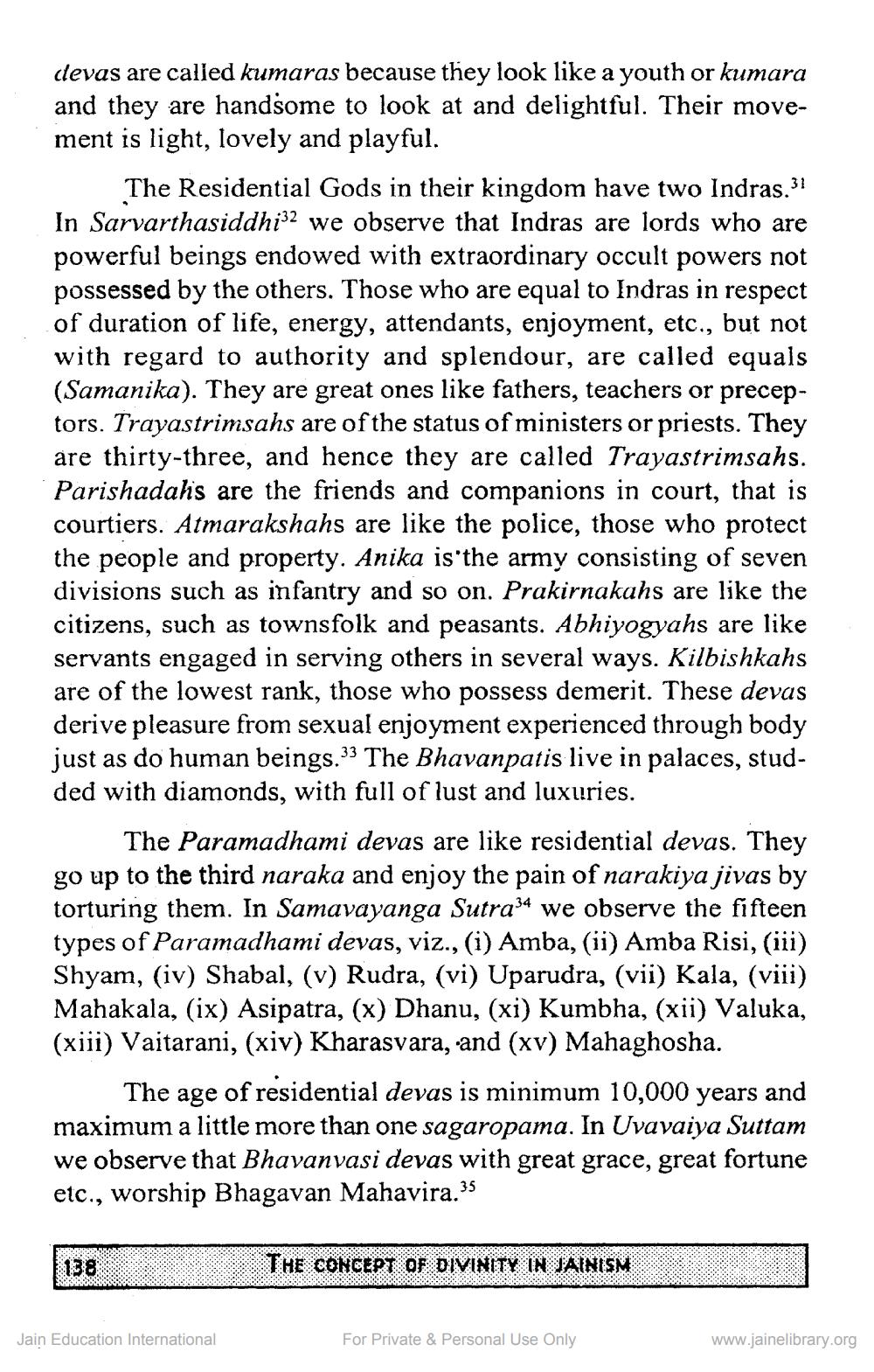________________
devas are called kumaras because they look like a youth or kumara and they are handsome to look at and delightful. Their movement is light, lovely and playful.
The Residential Gods in their kingdom have two Indras.31 In Sarvarthasiddhi32 we observe that Indras are lords who are powerful beings endowed with extraordinary occult powers not possessed by the others. Those who are equal to Indras in respect of duration of life, energy, attendants, enjoyment, etc., but not with regard to authority and splendour, are called equals (Samanika). They are great ones like fathers, teachers or preceptors. Trayastrimsahs are of the status of ministers or priests. They are thirty-three, and hence they are called Trayastrimsahs. Parishadahs are the friends and companions in court, that is courtiers. Atmarakshahs are like the police, those who protect the people and property. Anika is the army consisting of seven divisions such as infantry and so on. Prakirnakahs are like the citizens, such as townsfolk and peasants. Abhiyogyahs are like servants engaged in serving others in several ways. Kilbishkahs are of the lowest rank, those who possess demerit. These devas derive pleasure from sexual enjoyment experienced through body just as do human beings.33 The Bhavanpatis live in palaces, studded with diamonds, with full of lust and luxuries.
The Paramadhami devas are like residential devas. They go up to the third naraka and enjoy the pain of narakiya jivas by torturing them. In Samavayanga Sutra34 we observe the fifteen types of Paramadhami devas, viz., (i) Amba, (ii) Amba Risi, (iii) Shyam, (iv) Shabal, (v) Rudra, (vi) Uparudra, (vii) Kala, (viii) Mahakala, (ix) Asipatra, (x) Dhanu, (xi) Kumbha, (xii) Valuka, (xiii) Vaitarani, (xiv) Kharasvara, and (xv) Mahaghosha.
The age of residential devas is minimum 10,000 years and maximum a little more than one sagaropama. In Uvavaiya Suttam we observe that Bhavanvasi devas with great grace, great fortune etc., worship Bhagavan Mahavira.35
138
Jain Education International
THE CONCEPT OF DIVINITY IN JAINISM
For Private & Personal Use Only
www.jainelibrary.org




